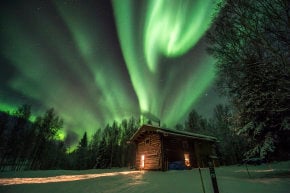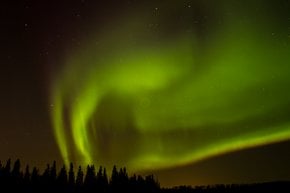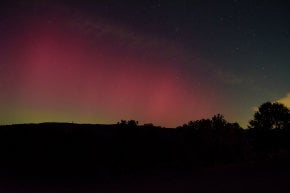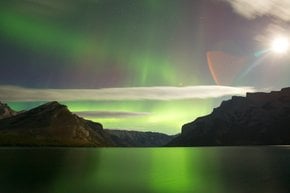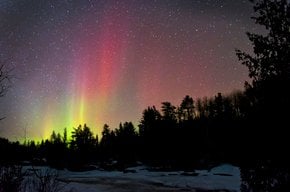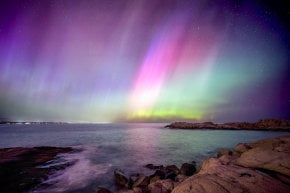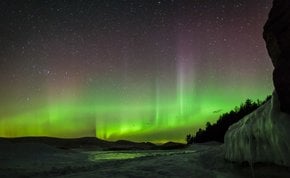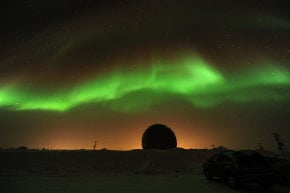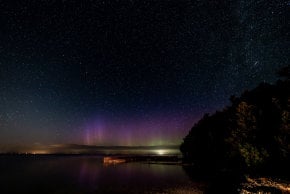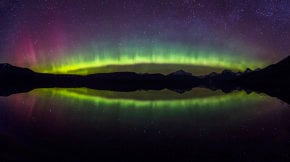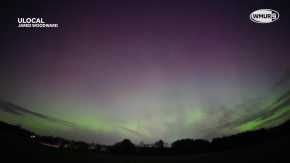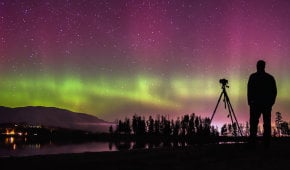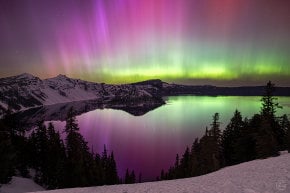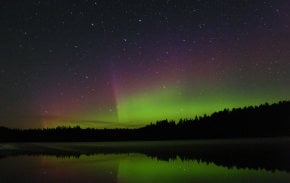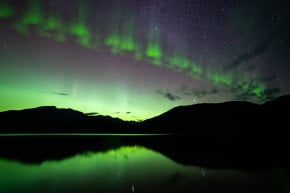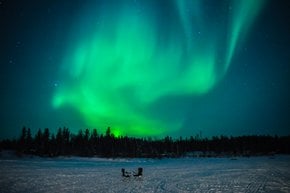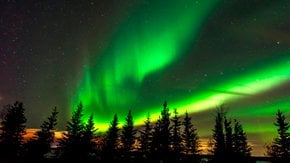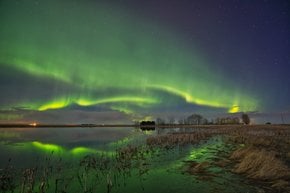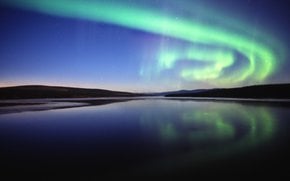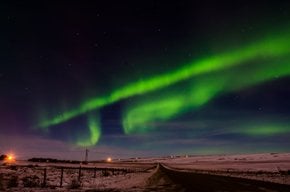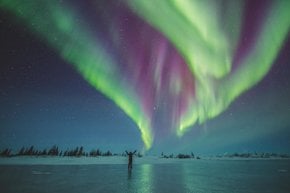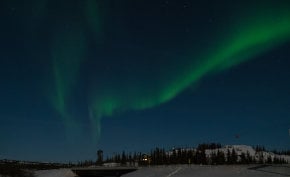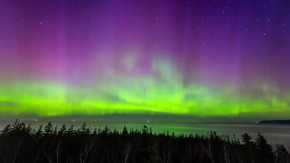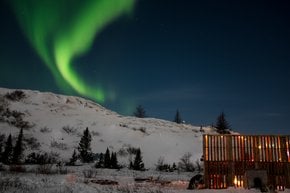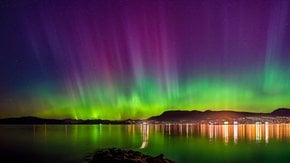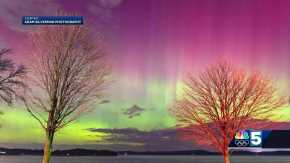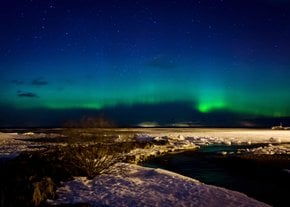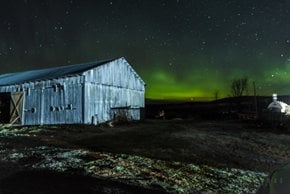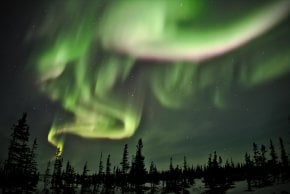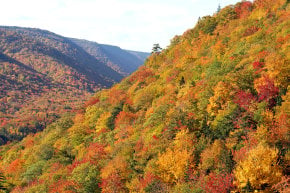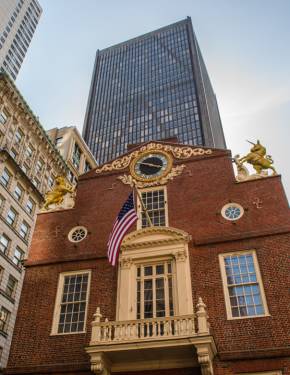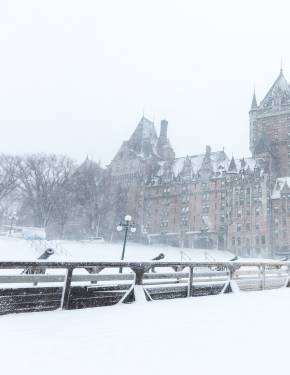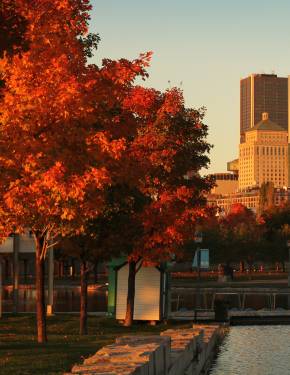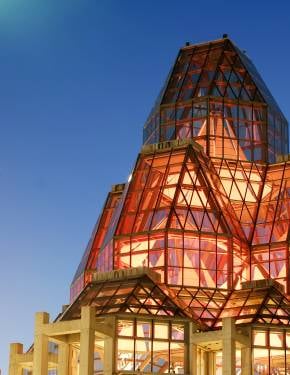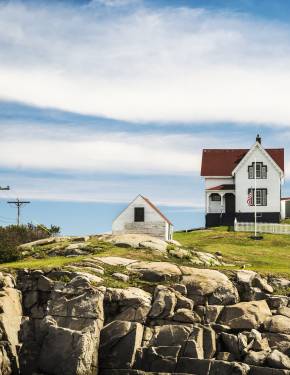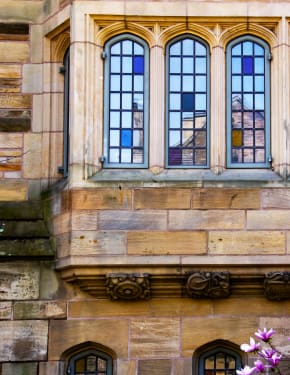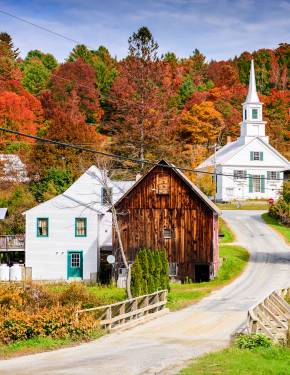Northern Lights in Nova Scotia 2025-2026
There's a good chance to see aurora borealis in Nova Scotia
Best time: September–March
The northern lights, or aurora borealis, is a natural phenomenon that captivates many with its vibrant colors dancing across the night sky. Although Nova Scotia is not typically known for frequent Northern Lights displays like Yukon or the Northwest Territories, there are certain times and conditions when this beautiful spectacle can be witnessed in the province.
Best Time to See the Northern Lights
The best chances to see the northern lights in Nova Scotia occur during periods of high solar activity and favorable geomagnetic conditions. The phenomenon is generally more visible between September and March, with peak visibility often coinciding with the fall and spring equinoxes. According to experts, the months of September, October, and March are particularly favorable for aurora viewing due to increased geomagnetic activity. Monitoring specialized websites, such as the National Oceanic and Atmospheric Administration (NOAA), can provide precise aurora forecasts for optimal viewing times.
Prime Viewing Locations
Nova Scotia is surrounded by water, which gives it an advantage in an aurora borealis hunt. It also has several beautiful nature preserves without light pollution where the skies are the darkest.
Northern Areas
Northern areas naturally have better visibility of the aurora. Like, Meat Cove village, located the northernmost tip of Cape Breton Island, surrounded by beautiful jagged cliffs. Nearby Cape Breton Highlands National Park offers more places to view northern lights. Thanks to the coastal location Five Islands Provincial Park is another perfect place to spot the aurora. The park located in Colchester County includes the small islands of Moose, Diamond, Long, Pinnacle, and Egg—all of them located just off the coast. Pinnacle Rock is one of the landmarks of the Five Islands.
Port Maitland Beach and Kejimkujik National Park
Port Maitland Beach located in the Yarmouth and Acadian Shores features beautiful sand dunes and suits well for observing the skies over the ocean. The vast Kejimkujik National Park is located on the southwest of the Nova Scotia peninsula and also serves well for an aurora hunt.
Halifax
While urban areas typically have more light pollution, there are still opportunities to see the Northern Lights in Halifax under the right conditions. Locations such as Point Pleasant Park or areas near the coastline can offer clearer views away from city lights.
Admission and Hours
Most of the recommended viewing locations, such as national and provincial parks, have specific hours of operation and may require an entrance fee. For example, Cape Breton Highlands National Park charges an entrance fee of CAD 9 per adult, and it is open from sunrise to sunset. It's advisable to check the official websites for the latest information on operating hours and any potential fees.
Accommodation and Nearby Amenities
The nearest towns and cities offer a range of accommodation options, from hotels to cozy bed-and-breakfasts. For instance, Baddeck and Ingonish in Cape Breton are conveniently located near Meat Cove and Cape Breton Highlands National Park. Similarly, Truro provides easy access to Five Islands Provincial Park, and Halifax offers a variety of lodging choices for visitors planning to stay in the city.
Additional Attractions
While the Northern Lights are a major draw, Nova Scotia has much more to offer. Visitors can explore historical sites, engage in outdoor activities like hiking and kayaking, or enjoy local cuisine and culture. For example, the Cabot Trail in Cape Breton is renowned for its stunning vistas and scenic drives, while the town of Lunenburg, a UNESCO World Heritage Site, offers a glimpse into Nova Scotia's rich maritime history.




